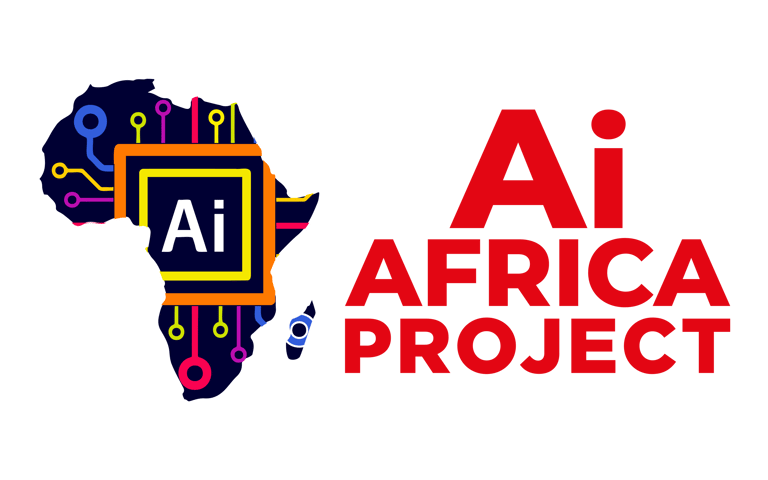Research Case 6: Forestry & Timber Production
1. Sector Description
Forestry and timber production form a crucial part of Africa’s bioeconomy, supplying wood for domestic use, export, furniture, and construction. Africa hosts over 624 million hectares of forest, accounting for about 21% of its total land area (FAO, 2023). Key products include logs, plywood, sawn timber, and wood charcoal. However, unsustainable logging, weak forest governance, and climate change pose significant risks, leading to an average loss of 3.9 million hectares of forest annually (World Bank, 2022).
2. Countries with Significant Resources
Tropical Rainforest Zones: DR Congo (home to the second-largest rainforest globally), Cameroon, Gabon, Congo-Brazzaville, Ghana, Liberia.
Dryland Forest and Savannah Woodlands: Sudan, Ethiopia, Tanzania, Mozambique, Zambia.
Commercial Timber Production: South Africa, Ghana, Kenya, Côte d’Ivoire.
3. AiAfrica Research Focus and AI Applications
The AiAfrica Forestry Research Lab is leveraging AI to promote sustainable forest management, improve timber value chains, and combat illegal logging. The core research themes include:
AI-Driven Forest Mapping & Biomass Estimation using high-resolution satellite imagery, LiDAR, and deep learning to track deforestation, estimate carbon stocks, and model reforestation strategies.
AI Log Authentication Systems integrated with QR coding and blockchain for timber origin verification and anti-fraud tracing during transport and export.
Predictive AI Models for forest fire risk, disease outbreaks, and illegal encroachment using meteorological and geospatial datasets.
Intelligent Timber Sorting & Grading using machine vision to classify wood species, moisture content, and structural quality for export compliance.
These solutions are currently being implemented in collaboration with forest commissions, logging companies, and community forest associations in Ghana, Cameroon, and DR Congo.
4. Proof of Value and Potential Impact
In Gabon, AI-assisted biomass assessments allowed conservation planners to estimate carbon sequestration potential with 94% accuracy, supporting carbon credit pricing for REDD+ programs.
In Ghana, AI log tracking models reduced illegal timber entries in pilot zones of Ashanti and Western North by over 40% in one dry season.
A timber grading prototype deployed in Cameroon increased sorting efficiency by 33% and helped exporters meet EU timber legality assurance standards.
In DR Congo, AI satellite surveillance flagged over 200 hectares of unauthorized clearing within protected forests, enabling timely intervention by forest authorities.
5. Eligibility to Join the Research Lab
Researchers, environmental scientists, forest economists, and conservation technologists may join the Forestry & Timber Research Lab if they:
Have completed at least the Intermediate Level of AiAfrica Training with specialization in Environmental AI, Geospatial AI, or Sustainable Resource Management.
Possess knowledge or experience in forestry, natural resources, land use mapping, or timber certification systems.
Are willing to contribute to interdisciplinary research outputs, such as AI model deployment, biodiversity monitoring, or sustainability reports.


Join our Team : https://chat.whatsapp.com/BDCozak2iDLDpRgMndsRT6
Sustainable Timber Solutions
Empowering Africa's forestry sector through responsible practices and innovative timber production for a greener future.
Sustainable Forestry
Promoting responsible timber production and forest conservation practices.


Forest Governance
Strengthening policies to combat illegal logging activities effectively.


Climate Resilience
Adapting forestry practices to mitigate climate change impacts.




Timber Exports
Enhancing trade opportunities for sustainable timber products globally.
Community Engagement
Involving local communities in sustainable forestry initiatives.
→
→
→
→
Empowerment
Training youth and women for digital leadership.
CALL / WHATSAPP LINE
+233 559 853 572
© 2025. All rights reserved.
Conclusion: A $6 Trillion Opportunity Powered by AI
A 2023 analysis by the African Development Bank projects that full value chain development across Africa’s natural resource sectors could unlock over $6 trillion in cumulative economic value by 2040. AI will be instrumental in capturing this value through enhanced productivity, precision forecasting, climate resilience, and knowledge transfer.
The AiAfrica Project provides a unique opportunity to position African researchers and innovators at the forefront of this revolution. By establishing dedicated research labs, training centers, and AI deployment strategies across the 50 sectors, Africa can not only leverage its natural wealth but also secure its rightful place in the Fourth and Fifth Industrial Revolutions.
